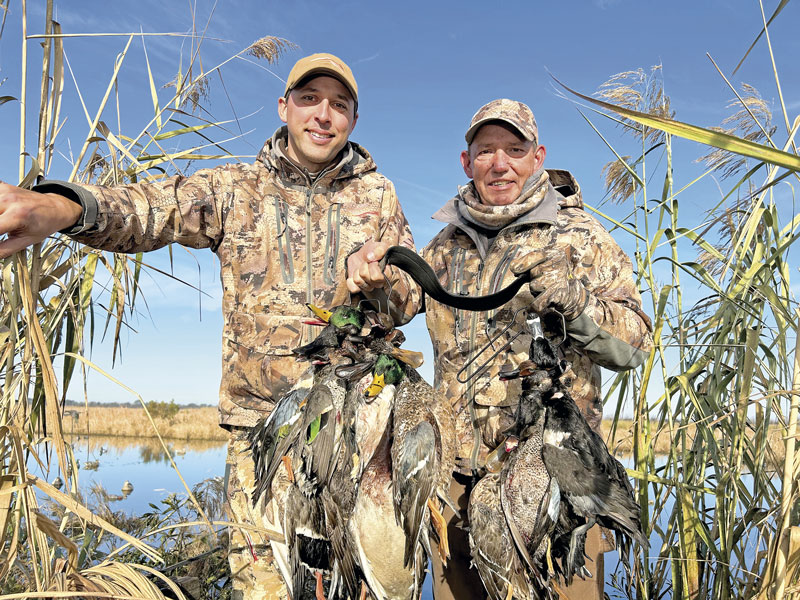When it comes to weather and the ducks flying, you’ve got to go to know
An epic front had just blown through and north winds ripped across the fields of Avoyelles Parish. By the number of hunters at the gas station down the street from the farm, we weren’t the only ones with sky high anticipation of epic flights for the day. With visions of fresh birds on the move seeking refuge in our ponds, no one would have bet on a skinny pile on the cleaning table that day.
Now, we have established expectations on significant weather events based on well more than just hearsay. In fact, countless north wind blows in the past have yielded bountiful harvests, but the results of this hunt proved how much we don’t know about the waterfowl we pursue.
Just the same, a review of now over two decades of my logged hunts reveals not only that blustery post-front conditions are no guarantee of a hefty haul, but also that foggy days or other warm weather patterns with other wind directions have produced at times. Clearly, rhyme and reason don’t always come together to paint a clear picture of when to head afield, and when to stay home; many times you just have to go see.
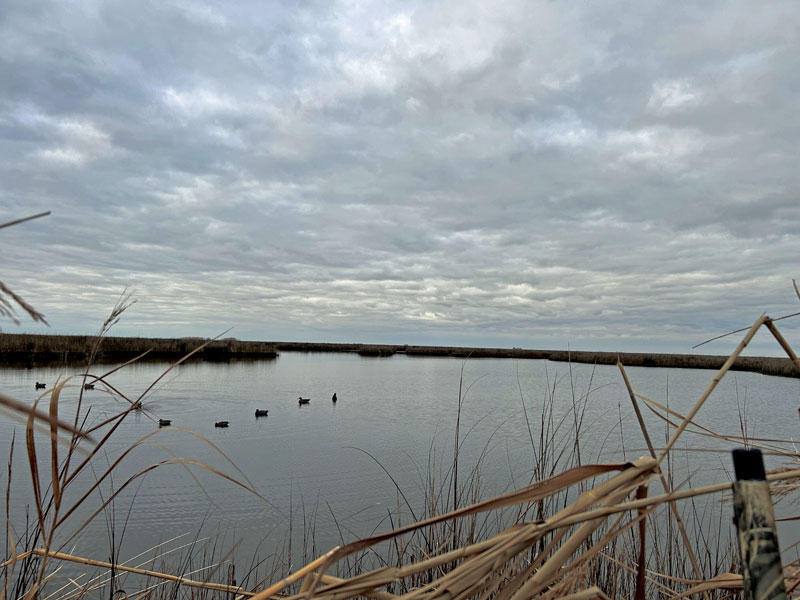
Food and safety
What most who study waterfowl beyond how to hunt them will agree on is that migrating birds focus their efforts on two key items: food sources and safety/survival. Hunters want the birds to fly, but as hunters we also have to understand how much energy the birds expend for doing just that, and they’d rather stay put at a location that affords one or both of those critical factors. A daily exercise routine is just not in the cards for them, unless their very survival depended on it.
Given hunter pressure, there’s only limited availability of places where both food and lack of disturbance are available in one place, such as refuges. Otherwise, most feeding areas with human activity such as rice fields typically have disturbance of some kind, be it crawfishing or other farming activity, or hunters. As a result, we are seeing more and more evidence of the birds using food sources at night, only to retreat to safety just as hunters are settling into their blinds for the morning hunt.
So what conditions are most favorable to put birds on the move and generate opportunity for hunters?
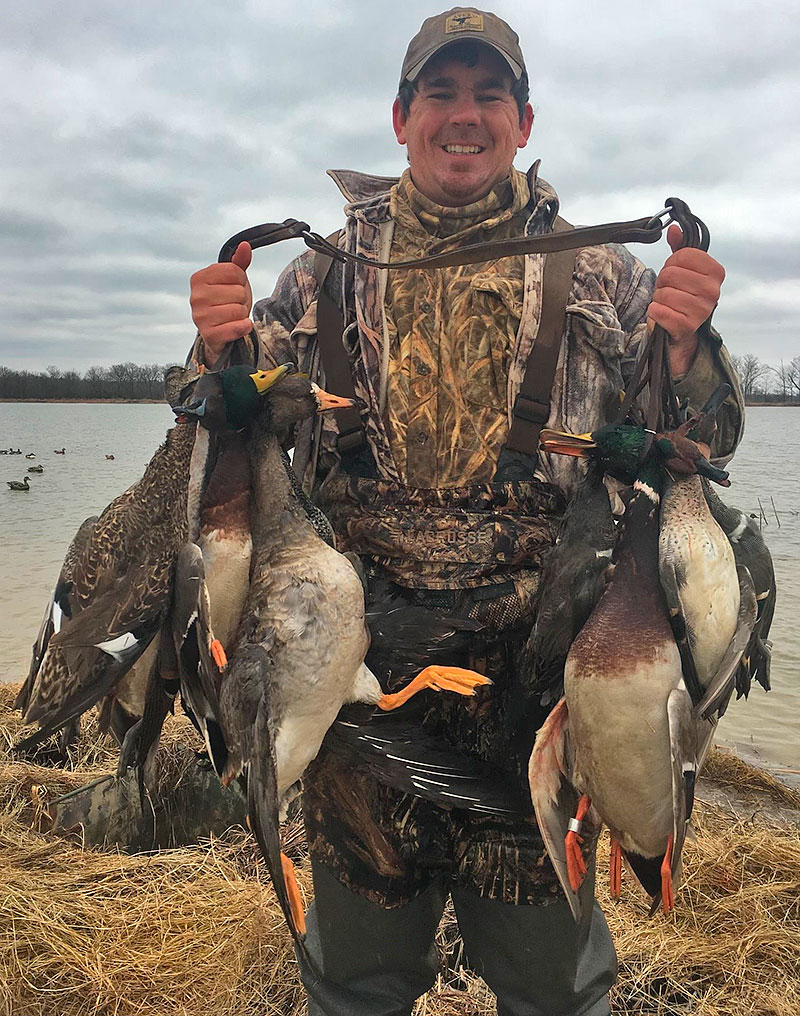
In recent seasons, it seems more and more hunters are biding their time for southerly wind patterns, shunning the long-held notion that new arrivals riding a cold front was the ticket to heavy straps. Though there clearly appears to be some remaining merit to that school of thought, there’s only so much certainty when pursuing an animal that routinely travels thousands of miles in flight.
Long time northeast Louisiana hunter Eric Kirk has maintained a meticulous hunting log dating back to 2013 hunting the same farm of Morehouse Parish. Though he’s had success on a variety of conditions, the log favors those northerly breezes associated with a frontal passage. Hunting just south of the Arkansas border, the Quitman resident likes to see big weather events coming through to get him excited about heading out to the agricultural fields he frequents.
“I want to be out there either when its nasty as the weather is moving in ahead of a front, or the day after with those clear skies and northerly breeze,” he said. “Occasionally we’ve seen success on a warm-up after a freeze or other pattern with a southerly wind, but overall give me north winds and cold temperatures.”
The first morning of a new wind direction can also help to move birds in that were previously holding nearby but not trafficking your area. Hunters often look northward hoping for “new” birds but the reality is regardless of whether they’re new to the state or only new to your vantage point, they’re typically more vulnerable to decoys and calls given they’ve not yet established a routine in your specific area.
Sunny works best
As far as simply evaluating conditions of cloud cover, Kirk’s confidence for success lies with clear skies and sunshine.
“It seems the birds are more willing to work when it’s sunny versus when it’s cloudy, specks especially,” Kirk said. “Birds will often work in pretty from way up high in the sunshine on a good clear day, there’s nothing like it!”
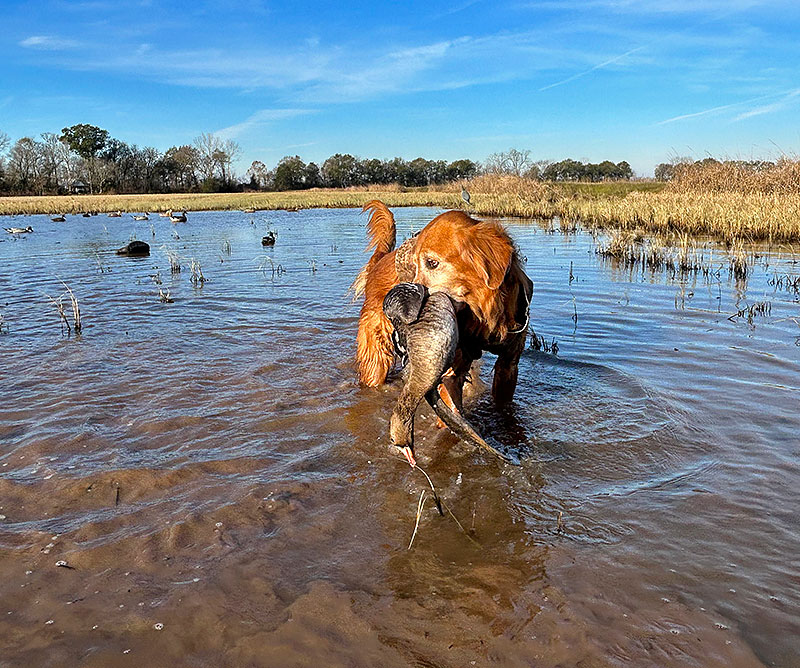
Haiden Richard with Southern Parish Outdoors likewise has his favorite weather conditions for chasing ducks and specks in the heart of southwest Louisiana’s rice belt. Though the 2021 world duck calling champion can run a call with the best of them, he’d much rather have the weather in his favor and not rely on the birds responding to the call if possible.
“Give me southeast winds and sunshine and we’ll get the ducks and the specks,” the Erath resident said. “Everyone gets excited for those big southerly winds to get the birds off the large bays along the coast and even out in the Gulf.”
Other hunters in the same vicinity have been echoing much the same sentiments for a while now, with plenty favoring south winds and milder conditions over north winds and cold.
“It seems the south winds bring birds to our fields to eat and makes it easier for them to get to us from the coast without fighting the wind,” Richard said. “A north wind has to be really strong to get them off those big waters and too often doesn’t seem to bring us new birds from the north behind a front, especially as we get later into the season.”
Regardless of the direction, Richard, like most other hunters, agrees that wind of any direction helps a hunter’s chances as opposed to the dreaded dead calm conditions.
Another proponent of clear skies, Richard especially likes sunshine for finishing specks in close, which also helps to conceal hunters lying in wait.
“The birds can get really tough on cloudy days, but when it’s sunny the shadows really help us to hide so we set up to make them work into the sun,” he said.
Whether chasing ducks or specks, he likes his odds best when the sunglasses come on.
Night feeders
In talking with both Richard and Kirk, I found a commonality in that we all favor about any weather condition that forces the birds to get out of their preferred routine, which makes them more apt to find themselves where we want them, when we’re actually there. When ducks and geese are able to settle into a pattern that too often favors habitat that doesn’t shoot at them, it can be tough to break them off of those routes without a weather shakeup.
“We’re finding many birds to be nocturnal these days, feeding in our fields at night and departing to refuges before sunrise,” Haiden said. “Any weather change that breaks their daily routine and makes them seek food during the day is what we’re hoping for.”
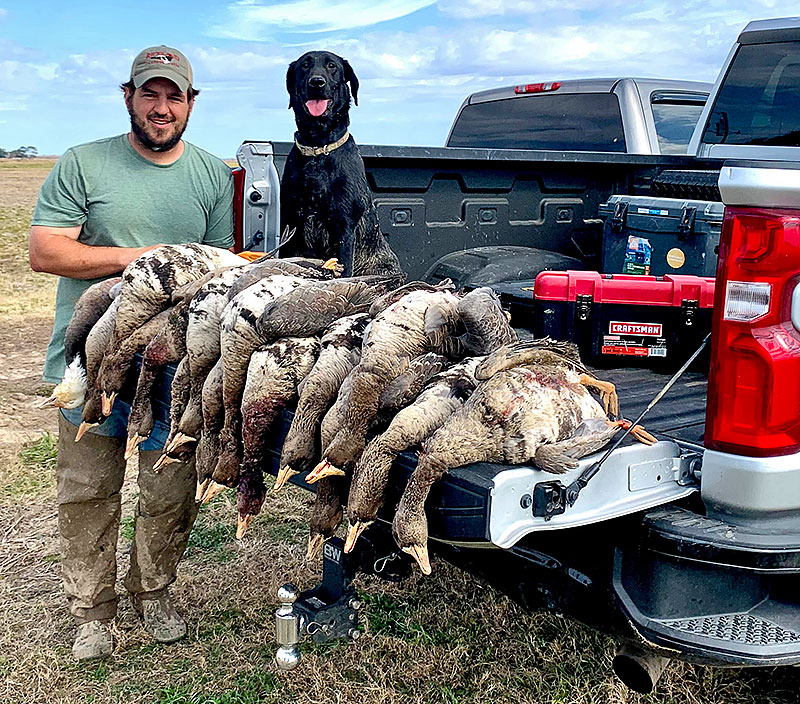
Along those same lines, rain can be boon or bane for duck hunters, depending on the type of habitat they’re targeting. A duck has a hard time passing up any kind of “new” water in the form of temporary flooded ground following a rain event. Newly flooded habitat brings with it new food sources, sometimes leaving hunters wondering where the birds went only to find them in a freshly flooded pasture nearby.
“We love the rain in the rice fields to get the ducks out of the marsh and big water rafts and into the shallow floods we hunt,” Richard said.
Similarly, specks will often do the same as they love to root around in freshly-mudded fields that previously were dry. Though there may not be an obvious food source to our eyes, the geese will often favor a muddy field over their prior destinations of flooded stubble following a big rain event.
Plainly the old adage of fowl weather being best for chasing ducks and geese is due for an update as more and more are finding comparable success wearing shades as much as rain gear. Most find that days of clear skies and sunshine result in trafficking birds that are more apt to respond to decoys, while also helping to hide hunters amongst the shadows of their blind’s cover.
Perhaps the most critical facet of tactically planning our hunting around weather is that changes in it often result in changes to the birds’ habits, thus making them a bit more vulnerable than during those stale patterns of persistent wind directions and/or sky conditions.
One adage that appears to stand the test of time is “you’ve got to go to know,” given as much as we think we know, there’s plenty of days when the given weather conditions resulted in a bag that was either heavier or lighter than expected.
